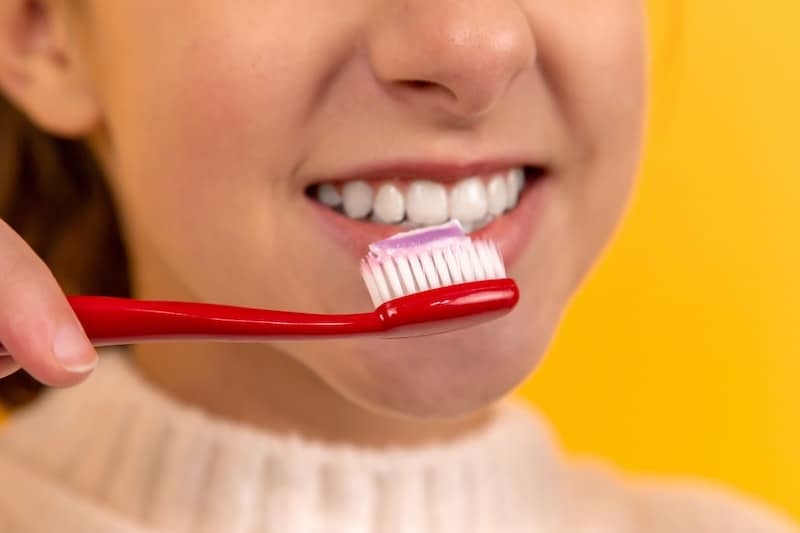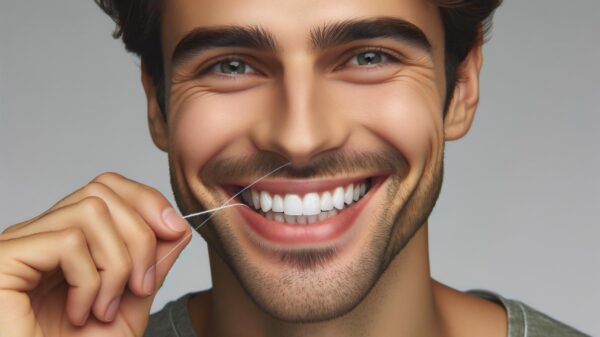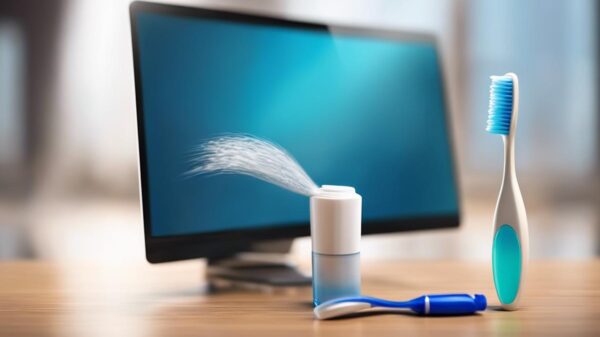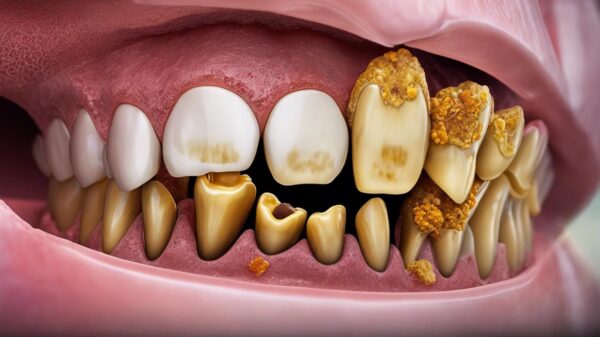What Makes My Toothbrush Hard?
Do you ever pick up your toothbrush and the normally soft bristles are now hard? Hard and stiff bristles don’t clean your teeth as well and can be really rough on your gums. So what exactly is it that causes the stiffness and how can you prevent it?
So, why does my toothbrush get hard? Not replacing the toothbrush regularly is the most likely cause of hard bristles. Over time, toothbrushes accumulate germs and residue left behind from toothpaste and whitening gel. If you start noticing a stiffness on your toothbrush before you use it, you should pick up a new one.
Hard bristles won’t clean your teeth well and can impact the health of your gums. Keep reading to find out everything you need to know!
Are You Replacing Your Toothbrush Every 3 Months?
The bristles on a toothbrush need to be flexible and soft to reach around curves and crevices in your smile. If you push your thumb against the bristles when rinsing it off and there’s no give – it means it’s time to get a new one. Add it to the grocery list!
Three months is a good length of time to keep a toothbrush. So if you attend your typical twice-a-year visits to your South Tulsa dentist, then you should be using two different toothbrushes between appointments. If you do this, you will be keeping your dentist happy and might even see an improvement in your health!
Sometimes we forget that if we’re sick and we brush our teeth, the bristles might pick up those germs – preventing us from feeling better and making our toothbrush gross. Keeping them on the bathroom counter leaves them vulnerable to germs and residue in the air as well, though it’s the best way to store them.
Things like overuse, heat exposure, pressure when brushing, and travel exposure can make a new toothbrush look and feel old and grimy in no time. You can learn more about changing your toothbrush after being sick here.
Leftover Toothpaste In the Bristles
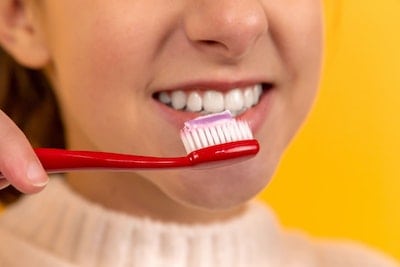 Do you rinse your toothbrush really well after using it? Rubbing your finger along the bristles while it soaks under water is the best way to prevent residue from building up. This is the process you should use every time you brush your teeth.
Do you rinse your toothbrush really well after using it? Rubbing your finger along the bristles while it soaks under water is the best way to prevent residue from building up. This is the process you should use every time you brush your teeth.
If the residue is accumulating on the base of your brush, you might notice that the bristles are less flexible, causing a shorter working length. You can check the state of your brush by looking closely at the base of the head and running it under water while checking the bristles.
Keep in mind that you should probably wash your hands before brushing your teeth and rinsing your brush! If you don’t, you’re allowing more germs from your hands to enter your mouth and potentially landing on the toothbrush and sticking. In addition to this daily cleaning, you may also consider one of these common methods for disinfecting a toothbrush.
Water In Your Home Could Be a Contributing Factor
Unfortunately, this potential cause is out of your control. Some homes have what’s considered “hard water” – meaning that the water supply has a high level of minerals. Usually, you can check this by noticing if there is a buildup on your shower head or bathtub, a brown line, or chalky accumulation along your faucets.
Stiff bristles are one of the other ways to tell if your water has a hard quality to it. The continuous mineral washing as you rinse the brush can make them stick to the bristles.
There are a few things you can do to get around the water issues. Investing in a water softener is one, though it’s the more expensive option. Some cheaper ways of lengthening the timeline of your healthy toothbrush are using boiled or distilled water when brushing.
Keeping a jug of water in your bathroom and using it to brush your teeth may help you prolong the life of your toothbrush. At the same time, you will be saving water and helping the environment!
Can Whitening Gel Cause Bristle Hardening?
Yes! Depending on how often you whiten your teeth and if you are brushing right afterward, the gel can build up along the bristles and make them harder. No matter how you are whitening your teeth – trays, strips, gel pens, it can all have the same impact.
Something you can do to help prevent this is to keep a second toothbrush that you only use after whitening. This may even prolong the life of both of your toothbrushes!
Just because you only use this brush after whitening, doesn’t mean you shouldn’t keep track of the bristle softness. Treat the second toothbrush the same as the first – if it gets hard, get a new one.
Maintain Good Dental Hygiene
Dental hygiene means brushing your teeth at least twice a day, but preferably between every meal. It is also strongly suggested that you floss at least twice a day, preferably between every meal. Mouthwash is also a great way to kill bacteria in your mouth as it gets into all the crevices in your teeth.
Just like how we are supposed to see a doctor once a year for a wellness visit, we are also supposed to go to the dentist every six months. These appointments are important so that potential problems can be caught early, thereby reducing health risks and financial stress.
Teeth are an important part of the body and we need to make sure we take care of them. Don’t ignore any problems and stay diligent in your dental health.
Say Goodbye to Hard Bristles!
Now that you’ve read all the reasons why your toothbrush can get hard and stiff, you can say goodbye to painful and gross bristles! Maintaining a cycle of replacing your toothbrush, rinsing well, keeping more than one brush for whitening purposes, and keeping a jug of water in your bathroom will make all of your problems disappear.
If you follow correct dental hygiene, you brush your teeth at least twice a day. This can create a lot of wear and tear on your toothbrush and your teeth/gums if you use too much pressure. A good toothbrush doesn’t have to be fancy or expensive. Find one that works for you and talk to your dentist if you have any other problems!
Related Questions
What Kind of Brush Do Dentists Recommend? Dentists are more concerned with how often you brush your teeth rather than the type of toothbrush you use. However, they still recommend using a soft-bristled brush. This term is widely encompassing as things like the number and angle of the bristles are also options to choose from.
Soft-bristle toothbrushes are the best option because pressured or overzealous brushing can cause erosion and gum receding over time. That’s why when your toothbrush starts getting hard, you should get a new one.
Dentists want to point out that pushing hard while brushing does not make teeth cleaner. As long as you find a soft-bristled brush that you are comfortable using at least twice a day, your dentist will be happy.
Is There a Difference Between Manual or Electric Toothbrushes? Most electric toothbrushes will come with soft bristles. The difference is the head vibrates and rotates which applies more pressure automatically. If you use just a regular old brush, you have to apply the pressure yourself.
For the most part, dentists are not concerned with whether you use a manual or electric toothbrush. The angling and layering of the bristles on manual brushes help get into all the nooks and crannies that the electric toothbrush does automatically.
You should know that an electric toothbrush can experience the same residue buildup over time as a manual brush does. Most electric toothbrushes come with an extra brush head, or you can buy replacement heads at the store. In the end, it just comes down to regulating the stiffness of the bristles on your toothbrush – no matter the style of the brush.
What is the Best Way to Travel With a Toothbrush? Investing in a travel toothbrush is a good idea, especially if you travel often. It is also a good idea to have a travel toothbrush because if we forget it on the way home, we will still have a toothbrush waiting for us!
Travel toothbrushes are good because they are designed specifically to protect the bristles and allow for drying between uses. A good travel toothbrush will likely have a cap that covers the head with holes for ventilation. Alternatively, it might fold together in a way that protects the bristles.
Make sure to avoid using a Ziploc bag for your toothbrush when traveling! Packing up a toothbrush, especially while it is still damp, can cause harmful agents to grow on the bristles.



